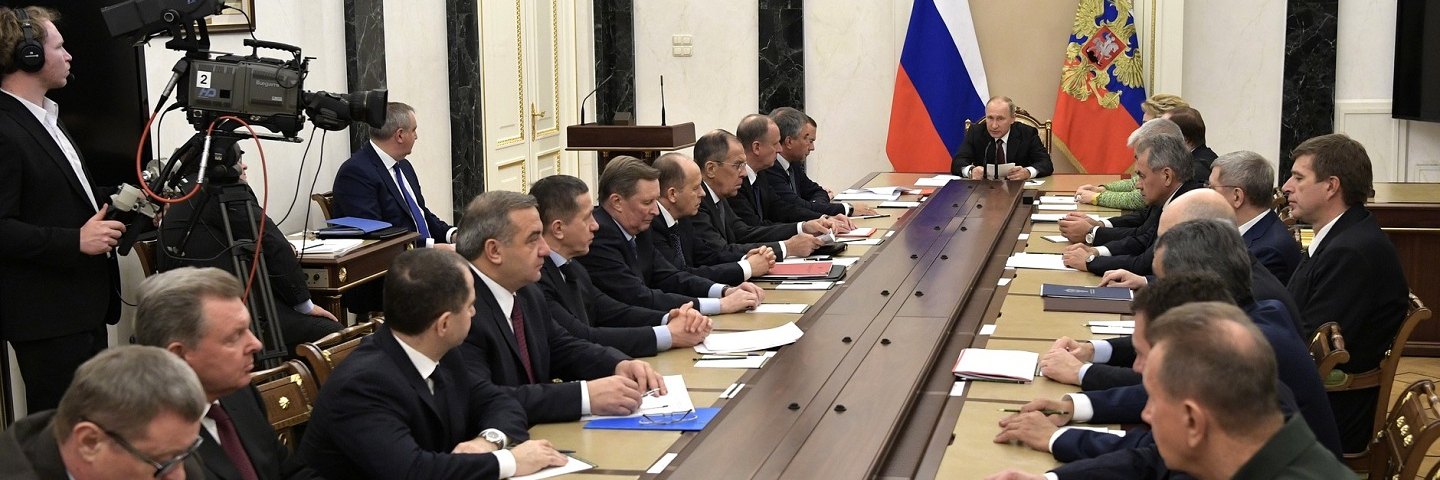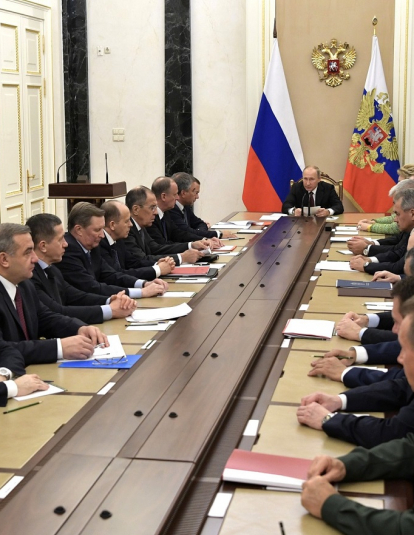Bild

Russia’s Security Council: Where Policy, Personality, and Process Meet
Security Council meeting
Vladimir Putin chaired an extended meeting of the Security Council at the Kremlin, October 26, 2017.
The participants discussed matters related to the protection of the state information infrastructure and measures on its development.
Oct
2019
No 041
